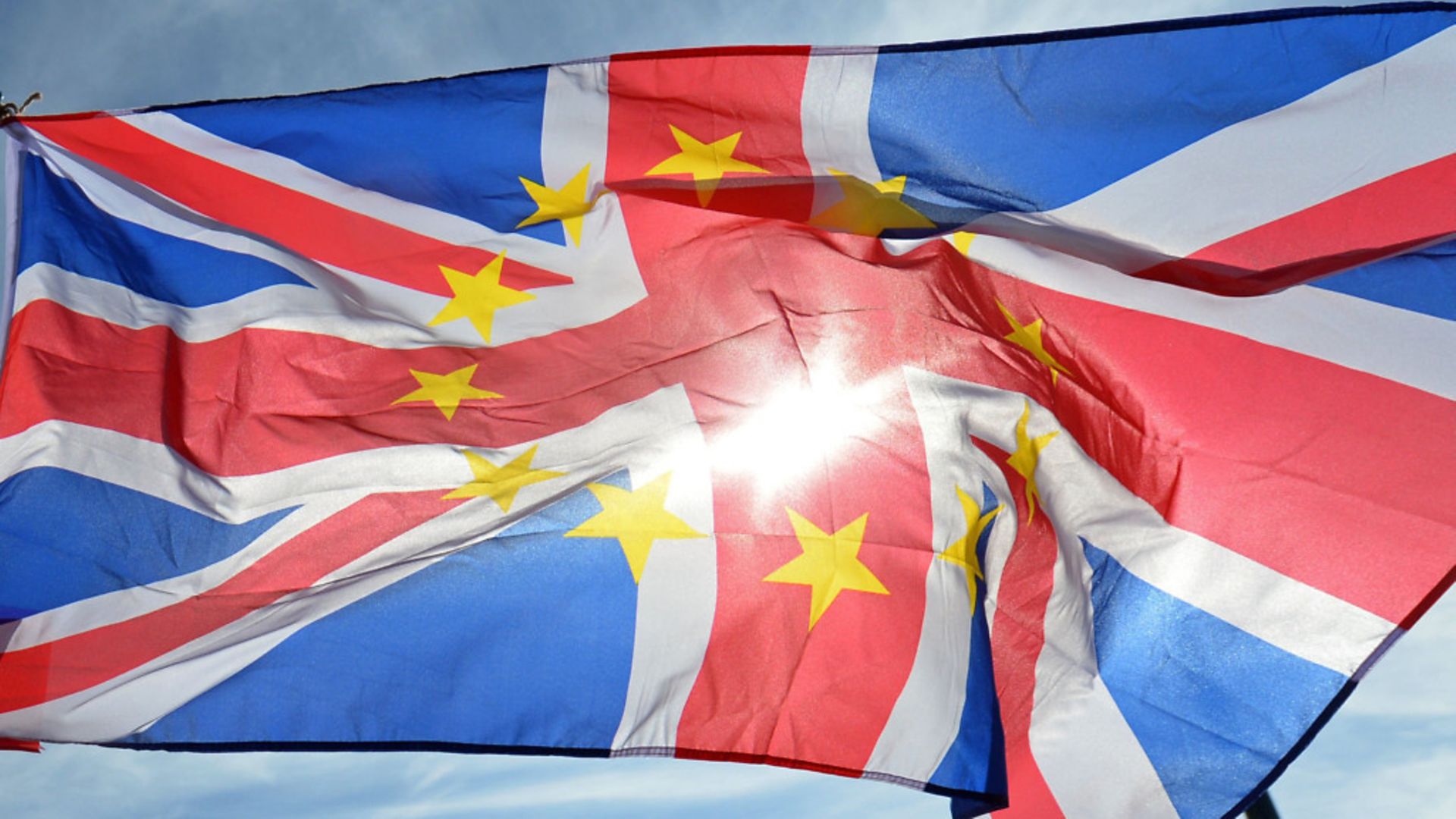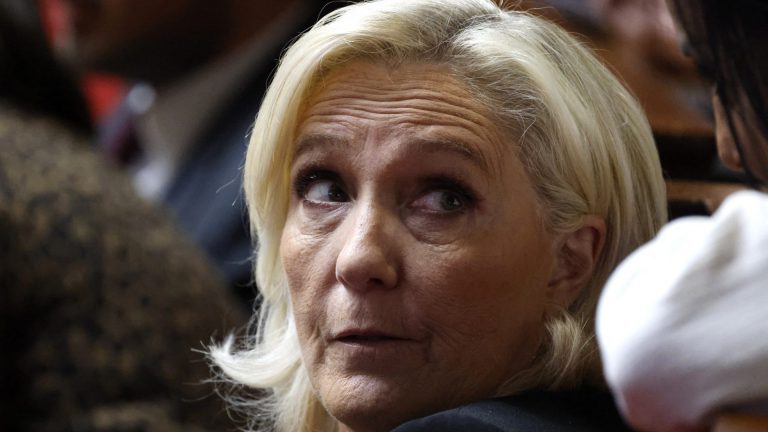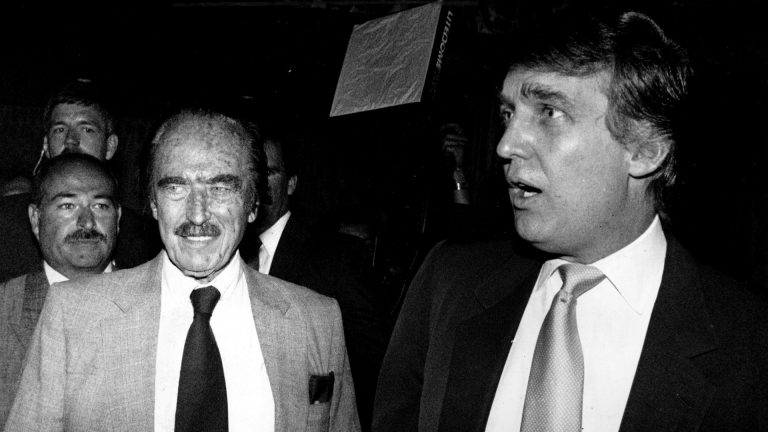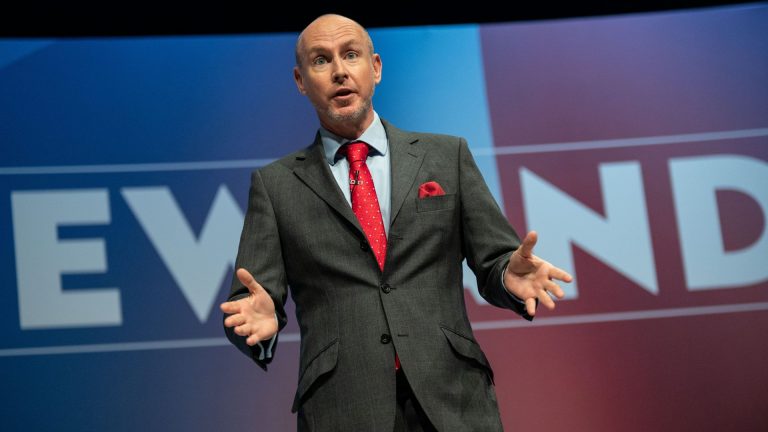Brexit has brought us here, to the sudden Conservative leadership election that puts the onus on the Tory party’s MPs and its narrow membership to choose the UK’s prime minister for the third time since the 2016 EU referendum.
Theresa May said she would make Brexit work, but she didn’t. Boris Johnson said he would get Brexit done, but nobody can claim that worked either, or the UK would not be threatening to break international law and endanger the Good Friday Agreement to get the terms of the Northern Ireland Protocol changed. Are the current candidates likely to fare any better?
With the exit of Brexit-ultra Suella Braverman – who wants the UK to follow Russia in leaving the European Convention for Human Rights in order to get her kind of Brexit done – the remaining candidates’ pitches are shorter on detail. The powerful hardline ERG is split and super-Spartan Steve Baker is still seeking someone to champion after the loss of Braverman. Will he go for former Remainer Liz Truss now that the right-wing Brexiteer Rishi Sunak is considered a centrist? With all the talk focusing on tax cuts, we have looked back at the candidates’ past utterances, seeking clues as to what they really think about Brexit.
Rishi Sunak
Although his Covid-era tax and spending hikes seem to have convinced some rivals that Sunak is some kind of spendthrift “socialist”, the former chancellor is, in fact, a conviction Brexiteer and before his time at the Treasury had been considered a fiscally cautious right-winger.
An early supporter of Brexit, he said in 2016 that it was a “once in a generation opportunity for our country to take back control of its destiny.” Leaving the EU would “immediately save £20 billion”, he said, and Brexit would make Britain freer, fairer and more prosperous: “Outside the EU, we can decide our own immigration policy, ensure our own laws and courts are sovereign, and enhance our position as a dynamic, outward-looking trading economy,” he said.
His zeal has remained undimmed, despite now pitching himself to Conservative leadership voters as the sensible one among fantasists: “Do we confront this moment with honesty, seriousness, and determination, or do we tell ourselves comforting fairy tales that might make us feel better in the moment but will leave our children worse off tomorrow?”
Since 2015, Sunak has tended to vote against more EU integration, UK membership of the bloc and the right to remain for EU nationals, but he doesn’t seem to be far out enough for the Brexiteers of the powerful European Research Group (ERG). In March, he said an economic hit from Brexit would be inevitable but rejected suggestions that leaving the EU had made the UK economy more “closed”, saying that the government’s intention was to open up trade with other parts of the world.
He has kept quiet on the Northern Ireland Protocol Bill, which Theresa May says breaks international law, but is expected to see it through parliament. Sunak has long supported the idea of low-tax, low-regulation freeports, which MEP’s have been trying to ban in the EU over their dodgy practices.
The slickly-presented Sunak has the backing of the largest number of MPs so far, including Deputy Prime Minister Dominic Raab, Transport Secretary Grant Shapps and former foreign Secretary Jeremy Hunt. Dominic Cummings is also a fan.
Penny Mordaunt
One of the bookies’ surprise favourites, Mordaunt benefits from the fact that she has always been a Brexiteer and did not serve in Johnson’s cabinet after he ended her brief stint as defence secretary when he assumed office.
She was a leading Vote Leave campaigner, insisting that Brexit would bring great benefits to the UK. Mordaunt is still unequivocally upbeat about the UK’s exit from the EU, despite the mountain of evidence to the contrary. “Brexit is not an event to be mourned by the international community. Or an act of self-harm or one that requires us to be punished. It is a massive opportunity to anyone who believes in democracy and the power of trade as a force for good in the world,” she said in a speech last year as junior trade minister. She has also written in The Telegraph that the benefits of Brexit were “huge” and that Britain would benefit from deals with individual US states, which would “open up procurement, tackle regulation and seek to mutually recognise professional qualifications.”
Mordaunt grabbed second place behind Sunak in the first round of voting after a ”patriotic” video that was more like a pastiche but appealed to the right people. The bombastic video – a soundtrack of “I Vow to Thee My Country” featuring Margaret Thatcher, Winston Churchill as well as pastoral, industrial and military imagery and the Queen’s Platinum Jubilee concert – was designed to channel the nostalgia that became so interlinked with Brexit.
Mordaunt’s promises were prefaced with the idea of a “return” to traditional British values and policies of “low tax, small state, and personal responsibility”. But while this, as well as her plans for a “modern economy” – focusing on growth and competition that would “yield a Brexit dividend”, a cut in VAT on fuel, and a rise in the income tax threshold — clearly had wide enough appeal to make her a contender to challenge Sunak, her pitch was marred by off-key moments, past and present.
She has faced renewed questions about her inaccurate statements during the referendum campaign that Turkey was about to join the EU and that Britain could not veto its accession — a sentiment she still says she “stands by”. This might not upset Brexiteers, but her “woke” stance on trans issues, which she has tried to gloss over, might.
She was absent for the voting on the controversial Northern Ireland Protocol bill in June, but backer James Sunderland has said that she plans to play “hardball” with the EU on the Protocol. Mordaunt, a Portsmouth-born naval reservist also has the backing of Brexiteer David Davis, who praised her for having “bravely defended the Brexit cause” in Theresa May’s cabinet, as well as Brexit campaigner Andrea Leadsom.
But she’s not won over Lord David Frost, the erstwhile Brexit negotiator, who said he had “grave reservations” about her from the time when she was his deputy in EU talks. “I felt she did not master the detail that was necessary in the negotiations last year. She wouldn’t always deliver tough messages to the European Union when that was necessary….This became such a problem that, after six months, I had to ask the prime minister to move her on and find somebody else to support me,” he said.
Liz Truss
In 2016, Liz Truss voted Remain, saying it was in Britain’s economic interest. “I don’t want my daughters to grow up in a world where they need a visa or permit to work in Europe, or where they are hampered from growing a business because of extortionate call costs and barriers to trade,” she said before the vote. Being in the EU helped protect “clean water, fresh air and thriving natural wonders”, Truss said: “Every parent wants their children to grow up in a healthy environment.”
She has been at pains to make amends ever since. In 2017, she declared that she had changed her mind and would back Brexit in another vote. She recently repeated this in The Telegraph, saying: “If I could go back to 2016, I would vote to leave….What I’ve seen in both my job in trade and my role as Foreign Secretary is the new freedom and impetus that having an independent trade policy and independent foreign policy has enabled us to do.”
With the exit of Brexit-ultra Suella Braverman – who wants the UK to follow Russia in leaving the European Convention for Human Rights in order to get her kind of Brexit done – the remaining candidates’ pitches are shorter on detail. The powerful hardline ERG is split but super-Spartan Steve Baker has now shifted his support to Liz Truss after the loss of Braverman. Will this tip the balance for struggling former Remainer Truss now that the right-wing Brexiteer Rishi Sunak is considered a centrist? And does she really have the ideological flexibility to transform from pro-EU MP to a full-on Brexiteer prime minister? With all the talk focusing on tax cuts, we have looked back at the candidates’ past utterances, seeking clues as to what they really think about Brexit.
In her born-again Brexiteer incarnation, she was at the forefront of efforts to tear up parts of the Northern Ireland Protocol, signed by Boris Johnson in 2019, an action that would involve breaking international law. The fact that the outraged EU is now threatening legal action only burnished her credentials. She also told Conservative MPs during the leadership campaign that she was prepared to pull out of the European Convention of Human Rights if the influence of the European Court of Human Rights in Strasbourg could not be reduced.
Her reincarnation seems sincere, and has convinced several key Brexit figures and institutions that she would carry the Brexit flame. Truss was endorsed theatrically by Jacob Rees Mogg and Nadine Dorries – claiming she was “a stronger Brexiteer than both of us” — in a Downing Street press conference that sparked rumours this was an implicit endorsement by Boris Johnson. Mark Francois, chair of the ERG, and Ian Duncan Smith have said they back her, as has Business Secretary Kwasi Kwarteng.
The Spectator has called her “the ultimate Brexiteers’ Remainer”, saying she “embraced the opportunities of Brexit with an enthusiasm no other politician has come close to matching”, and pointing approvingly to her opposition to “woke” measures such as restrictive anti-Covid measures.
In the Daily Express, John Longworth, chairman of the Brexit-supporting Independent Business Network, declared Truss most likely to deliver on their manifesto out of a roster of candidates where there is no perfect PM. This includes energetic deregulation, a restoration of “sovereignty”, removal of some tariffs and radical planning reforms for more house building, as well as “serious tax cuts” such as slashing corporation tax and fuel duty.
Truss was a co-author of Britannia Unchained, the appallingly written and argued 2012 pamphlet that praises overworked “patriotic cabbies” and slams “lazy” British workers. The book is full of the deregulatory, Darwinian credentials so beloved of Brexiteers, and, interestingly, barely deigns to mention Europe. Her supporter Kwarteng was a co-author of the book, but others, including Priti Patel and Dominic Raab, have not backed her, but she now also has the support of Brexit hardman Steve Baker of the ERG, which could be pivotal.
Kemi Badenoch
The MP for Saffron Walden was not even in parliament at the time of the Brexit referendum, so it’s no surprise that she campaigns as the “fresh face” her party so badly needs. But Badenoch, who is British-Nigerian and has lived in the US and Nigeria, has a political hinterland that references Tory tradition. Her inspirations include Churchill and Thatcher and her platform for the Conservative leadership is “anti-woke” and pro-small government.
She’s been a strong Brexit supporter from the start. It was the focus of her maiden speech in parliament in 2017: “I do not believe that winter is coming. I believe that the vote for Brexit was the greatest ever vote of confidence in the project of the United Kingdom. That vision of a global Britain is a project that as a young African girl I dreamed about becoming part of. As a British woman I now have the honour of delivering that project for my constituents in the greatest parliament on earth.”
Despite having a Remainer husband, Badenoch, who resigned from her roles as equalities minister and minister for the Department of Levelling Up last week after losing faith in Johnson, has kept the faith on Brexit. And she is clearly annoyed that the leaders of the outgoing government haven’t kept theirs.
“In 2016 and again in 2019 our country voted for change. Yet still a sense that things aren’t working remains,” she wrote in The Times as she launched her leadership bid. “My vote for Brexit in 2016 was a vote of confidence in our abilities as a sovereign country. We have failed to capitalise on that election winning majority of 2019.”
A relative unknown outside Westminster, she is seen as a star on the party’s right and has high placed fans within it as she gains appeal with her culture warrior views and statements like this: “(There) are always tough choices in life and in politics; no free lunches, no tax cuts without limits on government spending, no stronger defence without a slimmer state.”
On Northern Ireland policy and Brexit in general, she has not set out her stall yet, but it’s not likely to be soft. She voted for the controversial Northern Ireland Protocol Bill at the second reading.
Badenoch’s currency with the Conservatives is on the rise. She was second to Mordaunt in a YouGov poll of Conservative members that was released this week. Her most prominent backer is Michael Gove, who was her boss in the levelling up department and whose previous leadership campaign she worked on. He has called her “brilliant”.
Tom Tugendhat
Former soldier Tugendhat, a considerably less repentant Remainer than Truss, is now the sole candidate from the moderate One Nation Tory wing. And for that reason, he is not expected to win in a party largely captured by the right wing and Brexit faction. Nor is he likely to excite the Tory membership, which endorsed Johnson in 2019. But he has been trying hard to woo the Brexiteers.
Tugendhat is hardly a diehard “Remoaner”. He voted for the referendum in the first place and against closer relations with the EU before deciding to vote against leaving. After the vote, he vowed to respect the result. He supported both Theresa May’s and Boris Johnson’s Withdrawal Agreements and believes that the Brexit argument is now over: “Let’s plan for the future and stop looking back. This decision is made.”
In June, he publicly disagreed with Tobias Ellwood when the latter said the UK could solve some of its Brexit problems by rejoining the single market. Going back into the economic bloc would be wrong, Tugendhat said, because it “puts the EU in charge”, and would lead to new rules, open borders and an end to the UK’s efforts to strike new trade deals. The government should instead increase economic cooperation so the government could “energise our economy through these stormy waters”.
Although not in the cabinet, Tugendhat made his name in recent years as a tough, forensic chairman of the Foreign Affairs Select Committee, where he didn’t hesitate to challenge government figures. Last summer he gave an angry, heartfelt speech criticizing the chaotic withdrawal from Afghanistan.
His criticism of the Johnson’s government’s behaviour as it tried to push through its hard version of Brexit was also harsh: “I think the government has been spectacularly unwise in various areas. The prorogation looks like a cheap parlour game – no, it doesn’t, it looks like a cheap schoolboy stunt. That’s what it looks like,” Tugendhat told Politics Home in 2019.
He also slammed Johnson’s suspension of 21 Conservative MPs who rebelled over Brexit:“I think they need to find ways to make sure that the party is able to include people from across the spectrum, because if you’re losing people like David Gauke and Rory Stewart, you’re losing some real talent,” he said. “And the idea that they’re not Conservative – really?”
Tugedhat’s pitch for the leadership is about making a fresh start, one of rationality, sensibility and competence: “This is not some sort of game. This isn’t just some sort of knife fight in a phone box. This is a battle of ideas that is actually going to determine the future of our country.”
This might not float the boats of the Conservative Party membership today, but he has backing from across the Atlantic: the New York Times ran an opinion piece about him entitled “The Prime Minister Britain Needs Now.” His parliamentary backers include former cabinet office minister Damian Green, International Trade Secretary Anne-Marie Trevelyan, and leading Red Wall MP Jake Berry.











